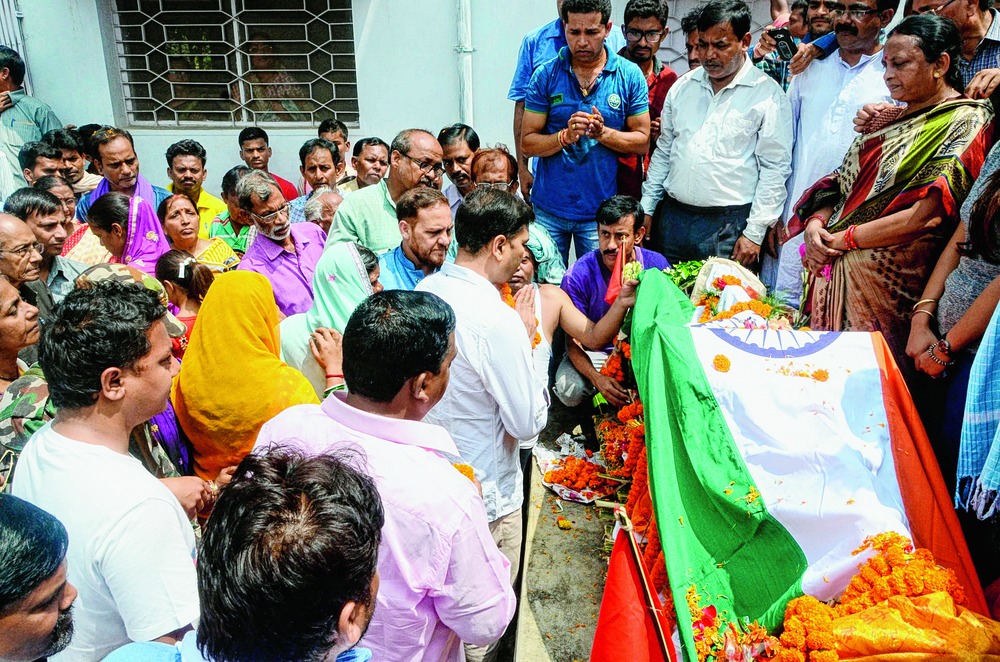

Former Ranchi University professor Bindheswari Prasad Keshri, one of the key figures of the Jharkhand statehood movement, breathed his last late on Sunday in the capital. He was 83.
Keshri, who was suffering from pneumonia, died from a massive cardiac arrest.
He is survived by his wife, two daughters who are professors and a son who is a doctor.
His cremation was performed in Pithoria village on Ranchi outskirts with full state honours on Tuesday in the wake of chief minister Raghubar Das's directives on Monday. Das had visited Pithoria on Monday to pay his last respects.
Among those present at the cremation on Tuesday included state drinking water and sanitation minister Chandra Prakash Chaudhary, former deputy chief minister Sudesh Mahto, state women's commission chairperson Mahua Maji and Keshri's old associates from Ajsu party Suraj Singh Besra and Deo Sharan Bhagat.
A true-blue Jharkhandi, Keshri had always felt Jharkhand was an internal colony, that needed to be freed from the administrative control of Bihar. He also played a vital role in setting up the tribal languages department in Ranchi University in the early 1980s.
Keshri was one of the five coordinators of Jharkhand coordination Committee (JCC), an umbrella organisation of 53 pro-Jharkhand outfits, which was formed in 1987. The committee injected new life to the statehood movement.
He never craved for power. He did not take part in active politics after Jharkhand was born. Rather, he devoted his time to compiling an anthology of regional poetry.
"Though known as a Marxist, his simple life suggested he perhaps believed in the Gandhian way of life," said film-maker Meghnath, who attended the cremation and had spent 17 days in jail with Keshri during the statehood movement.
"Looking back, I find he always advocated for the political recognition of Jharkhand's cultural identity," remarked Sanjay Basu Mallick, who was also a JCC coordinator along with Keshri.











